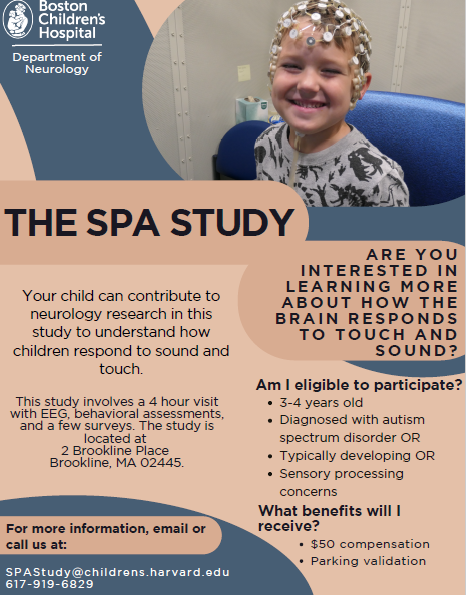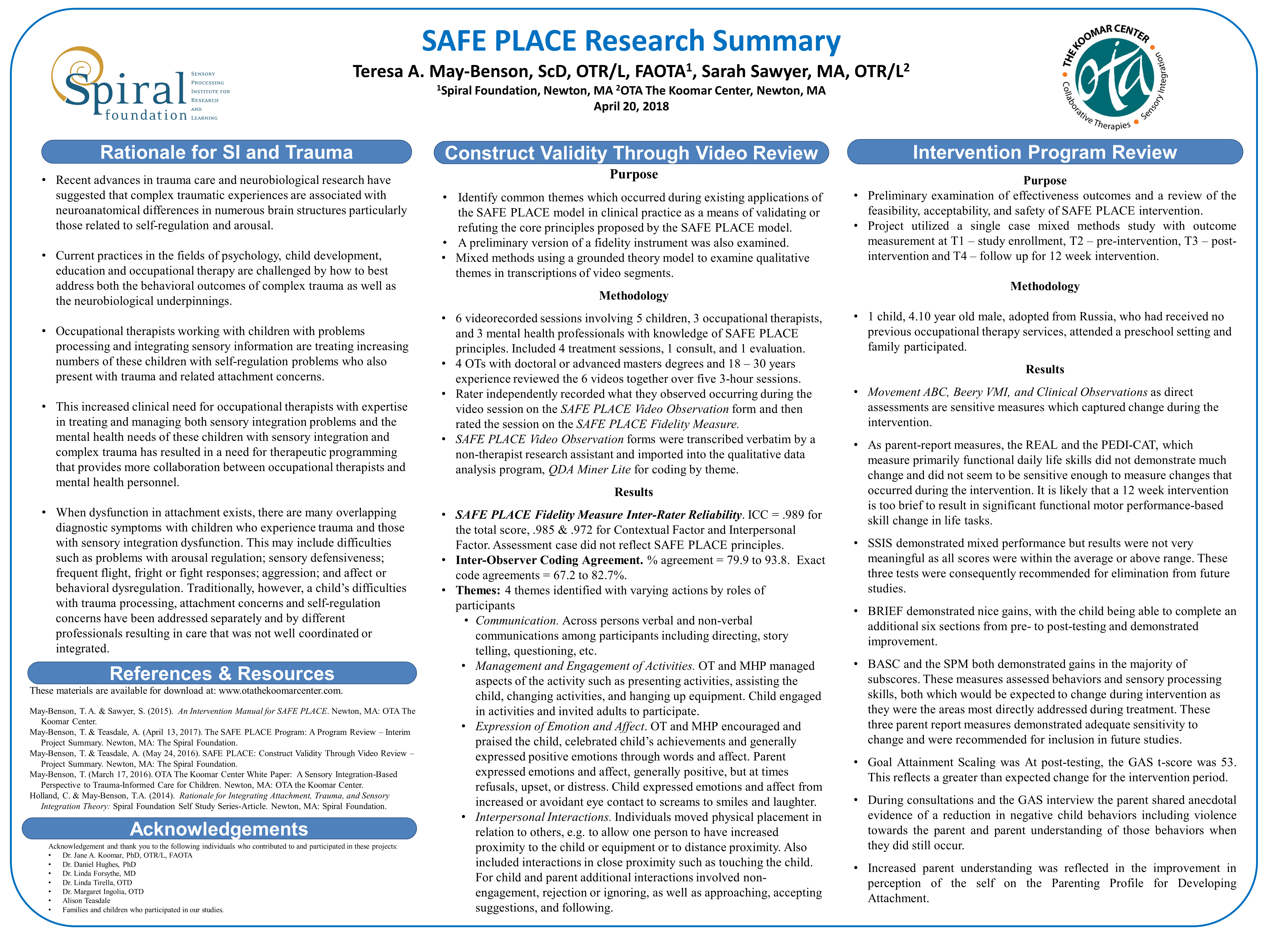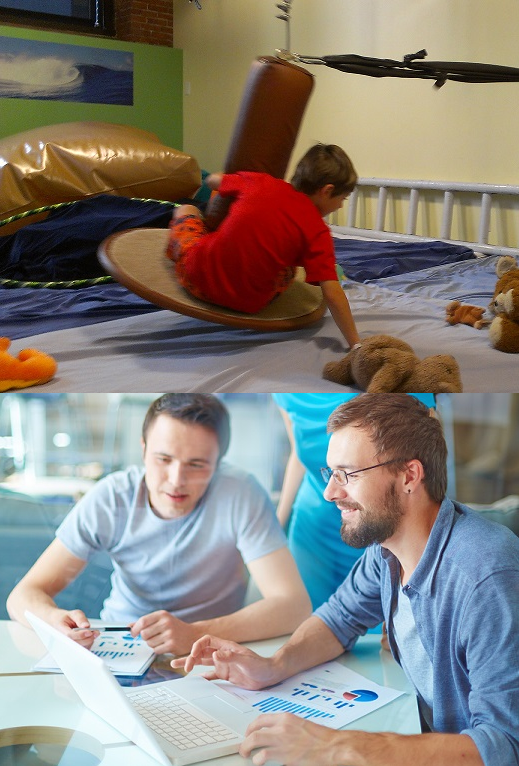Current Research Projects
The SPIRAL Foundation is committed to conducting research which aims to improve the lives of individuals with Sensory Processing Disorder (SPD) and their families. Our research programs primarily contribute to improved understanding of SPD, assessment development and investigation of efficacy of treatment modalities.
If you have any questions about past or current SPIRAL Foundation research projects, or are interested in participating in any of the studies detailed below, please contact our Senior Research Assistant, Alison Teasdale or our Research Coordinator, Olivia Easterbrooks-Dick, or 617-969-4410 ext 267.
Selected Research Projects
Sensory Processing and Adaptation Project
Dr April Levin and her team at the Department of Neurology at Boston Children’s Hospital have contracted SPIRAL Foundation to support recruitment for their study, Sensory Processing and Adaptation (SPA). The SPA project’s goal is to understand how different individuals process sensory information and hope that this understanding will lead to improved intervention for individuals experiencing sensory processing difficulties.
SPA project is recruiting three groups of children 3-4 years of age: children with autism, children with “sensory processing concerns” who do not also have autism, and children with typical development. To investigate sensory processing in these groups, SPA project will use play-based assessments, questionnaires, and EEG (a safe and non-intrusive measure of brain activity). Participation includes an approximately 4-hour visit to 2 Brookline Place in Brookline, MA. Participants will receive $50 upon completion of the study visit and parking reimbursements.
If you wish to participate or learn more, please email us or call 617-969-4410 ext 267, or contact Dr Levin’s team directly at SPAStudy@childrens.harvard.edu, or call 617-919-6829.

Longitudinal Follow Up Of Children with SPD 5 – 30 Years Later
The SPIRAL Foundation has been engaged by our sister organization OTA The Koomar Center (formerly Occupational Therapy Associates and OTA – Watertown) to conduct a long-term follow-up study of former clients to better understand the stability of sensory processing patterns over time and how these difficulties impact occupational performance factors in adulthood.
We invited randomly selected clients discharged by OTA from 1989-2013 to participate in a four part online survey and provide authorization for the Spiral Foundation to access certain information from their clinical records at OTA the Koomar Center. Participants chose to complete two, three or four sections of the survey in one or more sittings. Results for standardized measures used in the survey will be provided to participants upon request.
Responses to the survey will be matched with clinical data from OTA to examine the sensory processing and motor performance, quality of life, occupational performance and lived experience of adults who had sensory processing challenges as children who may or may not have received Ayres Sensory Integration intervention for these challenges.
Data collection is complete. If you have any questions please contact Alison at research@thespiralfoundation.org or Sarah Sawyer (OTA The Koomar Center) research@otathekoomarcenter.com
International Differences in Sensory-Motor Performance in Adolescents and Adults
The Adult/Adolescent Sensory History (ASH) is a self-report assessment of sensory and motor behaviors commonly observed in individuals with difficulties processing and integrating sensory information aged 13-95 years. The ASH is currently only available in English with normative data for US residents. International colleagues are currently in the process of translating the ASH into several languages. In the near future individuals aged 13-95 will be invited to complete the ASH online. Information collected will be used to examine international differences in performance on the ASH and to establish local normative data for participating countries as appropriate.
Not recruiting yet, please keep checking back or sign up to our email list – an announcement will be made when different language versions of the ASH are added to the research study.



